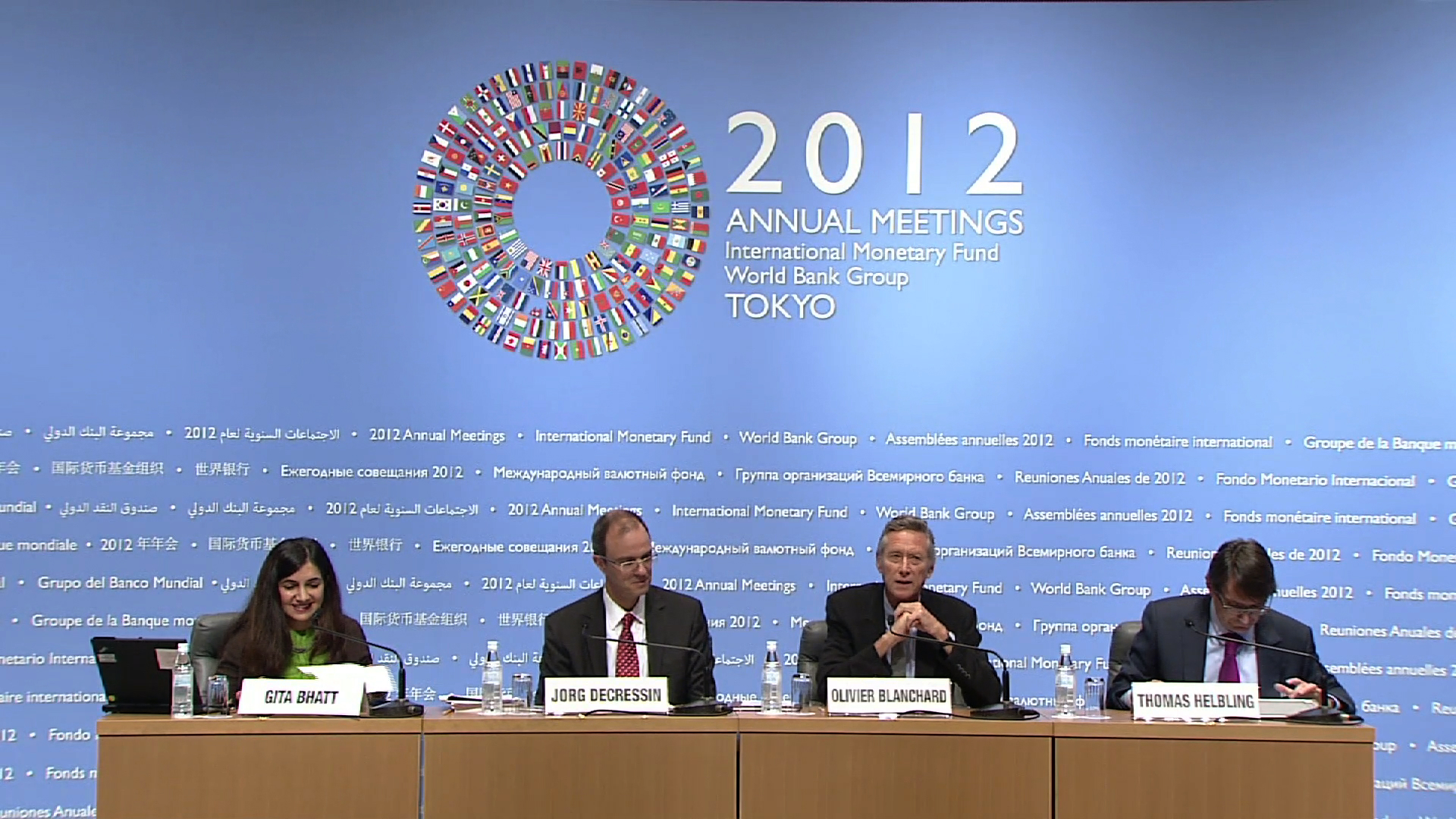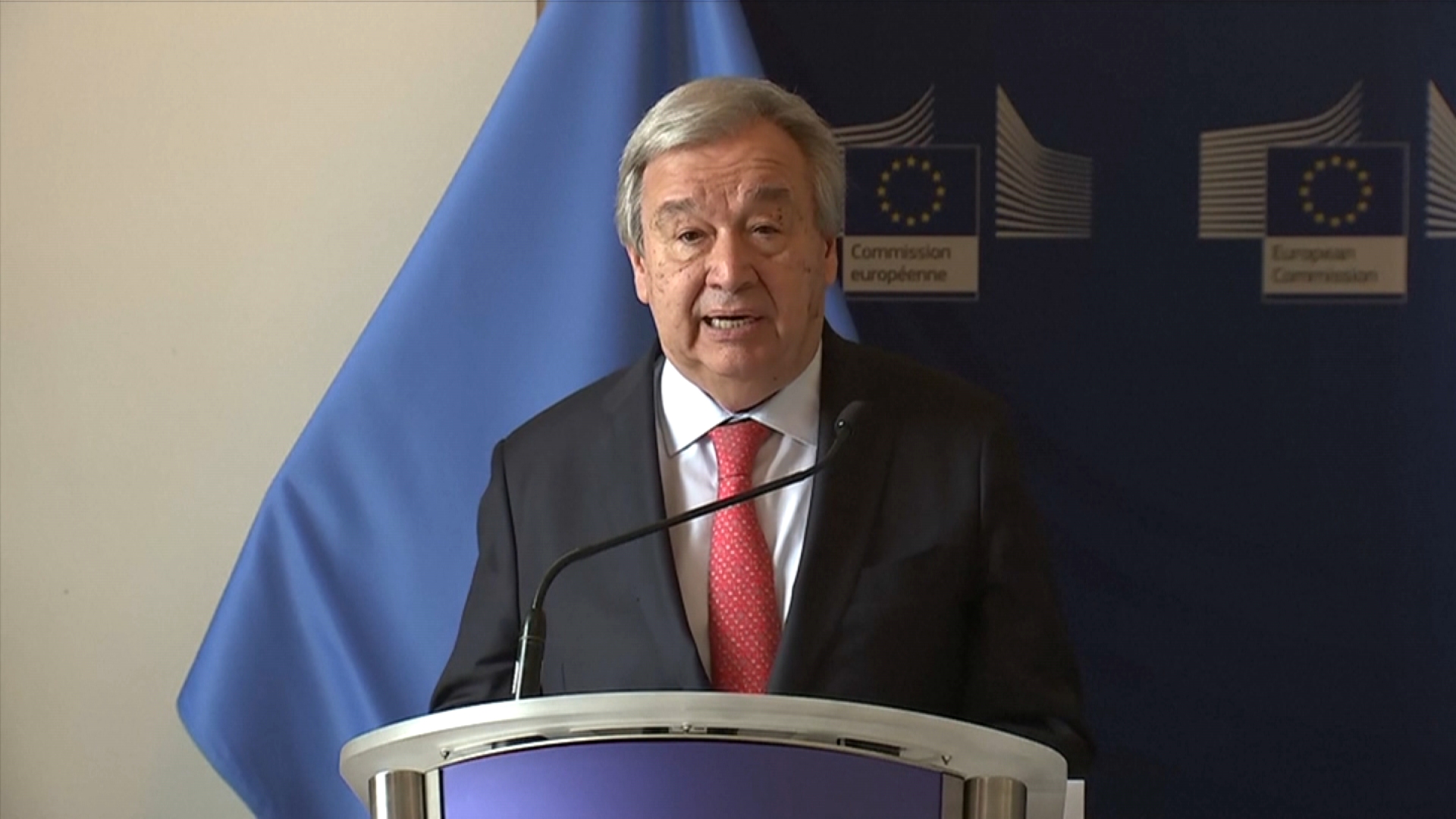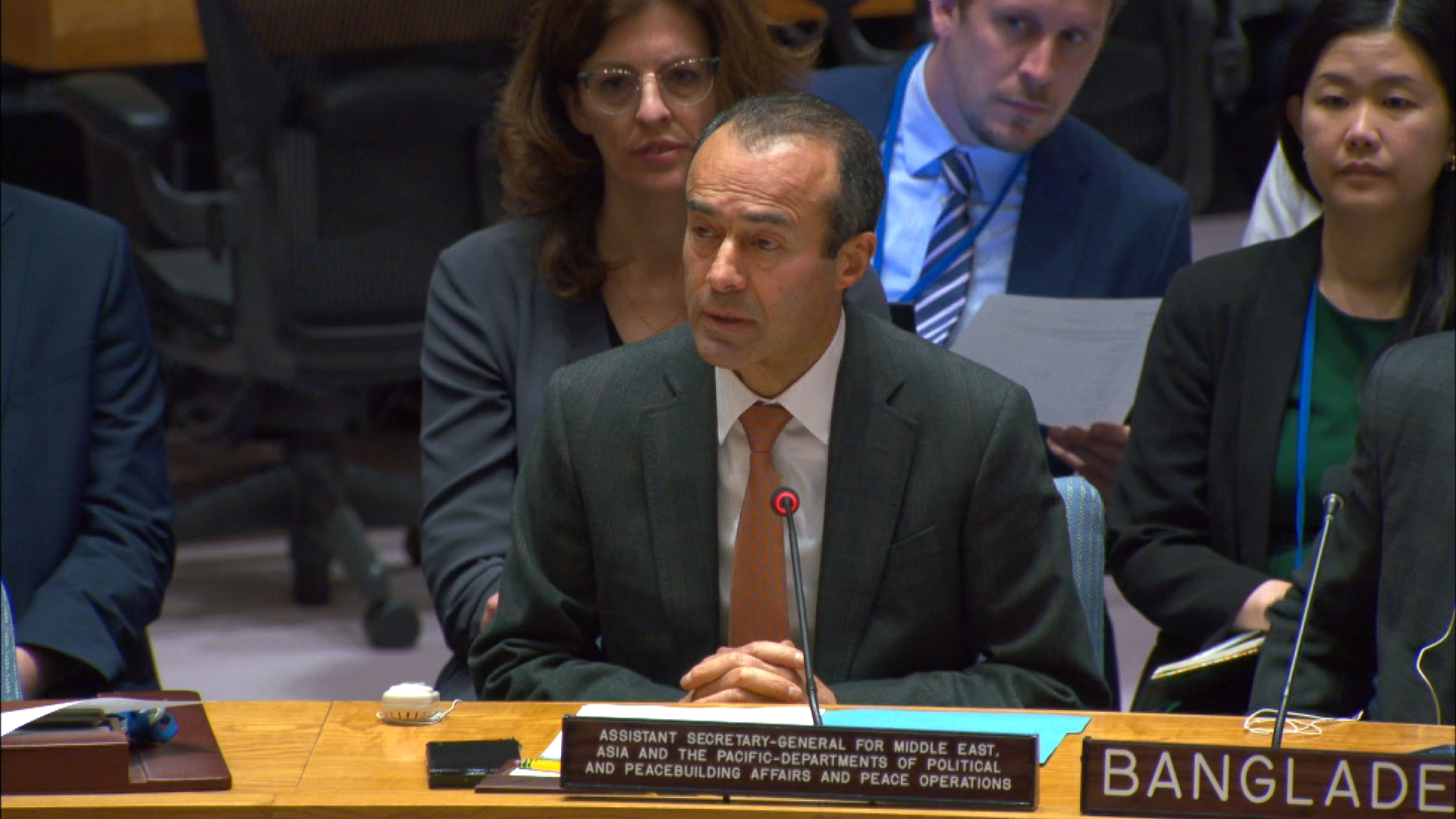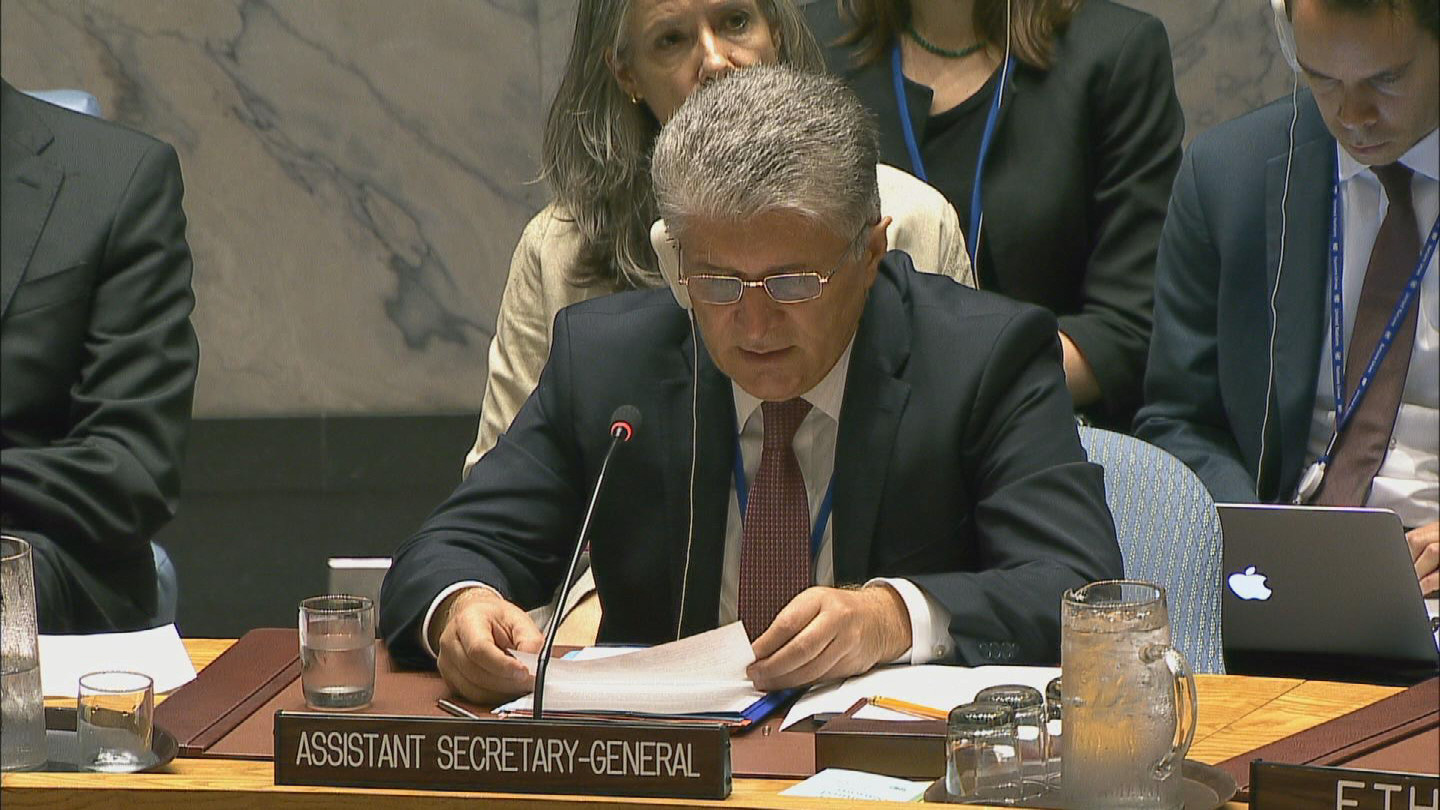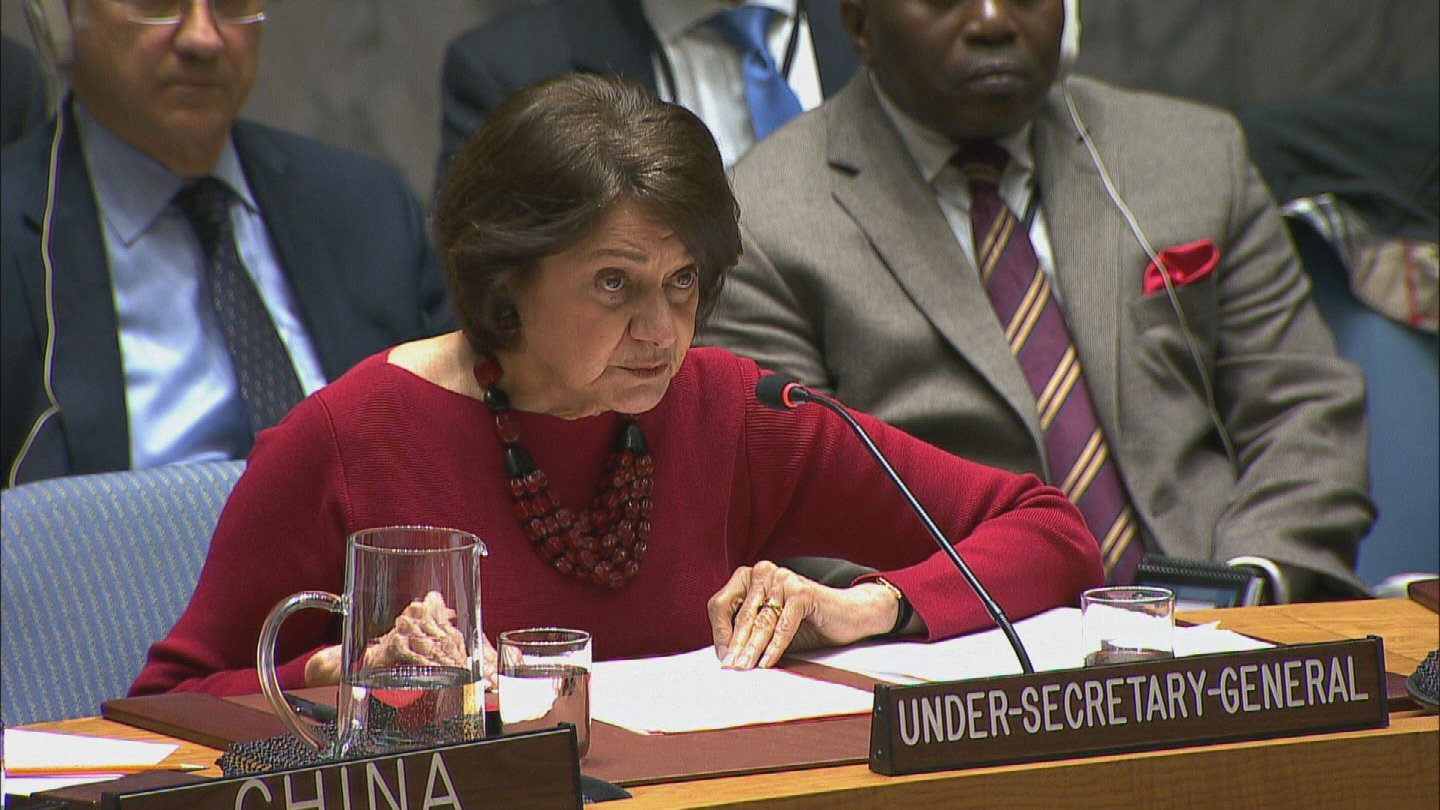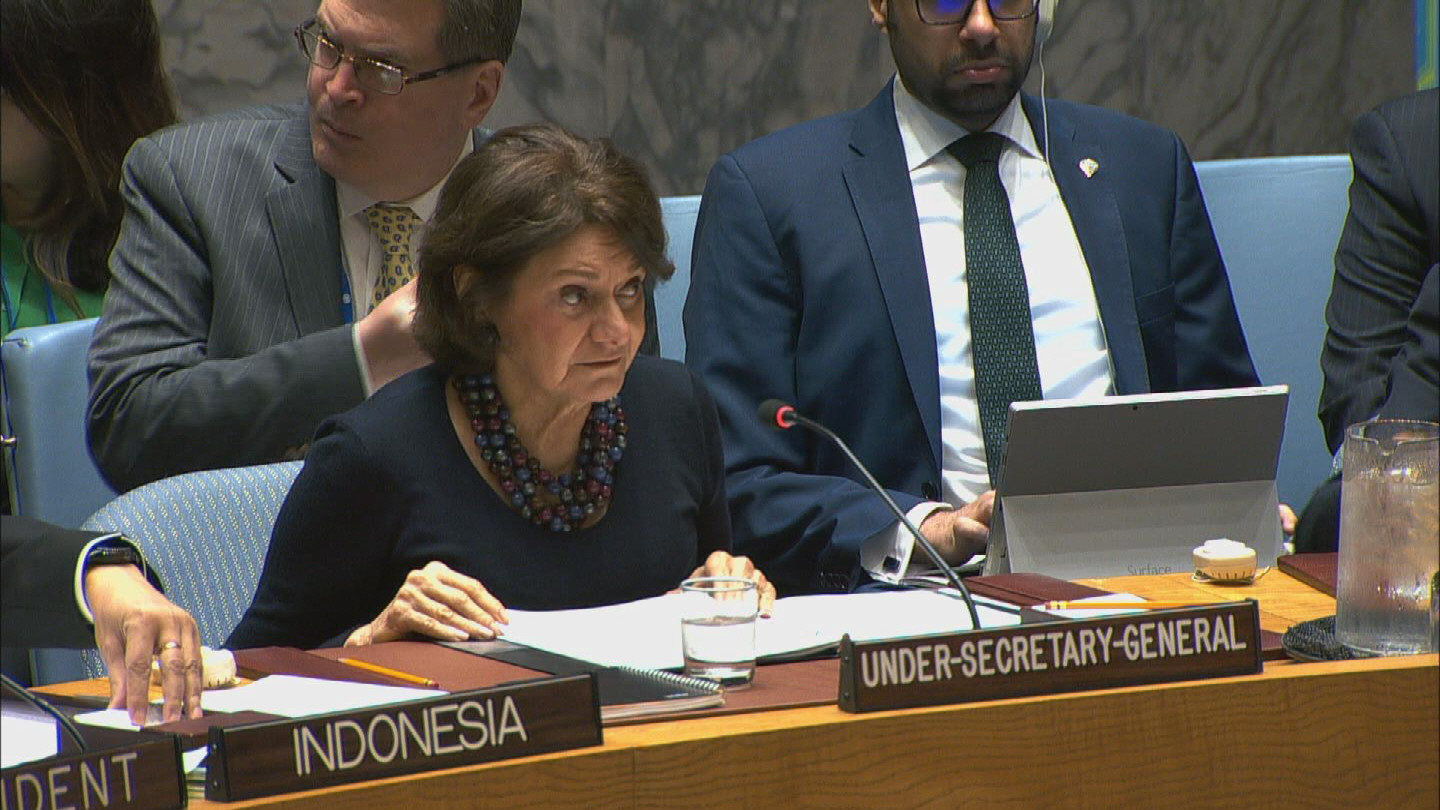UN / MEDITERRANEAN YOUTH CLIMATE
STORY: UN / MEDITERRANEAN YOUTH CLIMATE
TRT: 04:12
SOURCE: UNIFEED
RESTRICTIONS: NONE
LANGUAGES: ENGLISH / NATS
DATELINE: 17 APRIL 2024, NEW YORK CITY / FILE
FILE - NEW YORK CITY
1. Aerial shot, UN Headquarters
17 APRIL 2024, NEW YORK CITY
2. Wide shot, Security Council
3. Med shot, Council President, Ian Borg, Minister for Foreign and European Affairs and Trade of Malta
4. SOUNDBITE (English) Rosemary Anne DiCarlo, Under-Secretary-General for Political and Peacebuilding Affairs, United Nations:
“The potential and opportunity for renewal that young people represent, as well as the vulnerabilities that can often affect them disproportionately, means that they must be part of the broader discussions shaping our societies. Yet so much more needs to be done to meet the aspirations of the region's youth, including by empowering them to participate in the decisions that can affect both their present and their future.”
5. SOUNDBITE (English) Rosemary Anne DiCarlo, Under-Secretary-General for Political and Peacebuilding Affairs, United Nations:
“Today's discussion is focussed on the Mediterranean region and with good reason in the Southern and Eastern Mediterranean. Young people constitute 55 percent of the population. We recall the wave of demonstrations that swept across the region in 2011. Youth were at the forefront of these movements, protesting disenfranchisement and the lack of economic opportunity and employment. We also witnessed how violent and extremist networks exploited such grievances to lure young people into their ranks. Young people also make up most of those embarking on the perilous crossing of the Mediterranean, fleeing conflict and poverty in search of a better life.”
6. Wide shot, Council
7. SOUNDBITE (English) Nasser Kamel, Secretary-General, Union for the Mediterranean:
“The Mediterranean Sea holds a distinct influence at global level. Covering less than one percent of the world's oceans. It accounts for a fourth of all international seaborne trade, and it harbours around eleven percent of all marine species and generate an economic value of $450 billion a year, representing 20 percent of the annual global GDP. But at the same time, it is also a hotspot of many challenges that pose multilayered risks to our peace, security, and stability, not least to our younger generations.”
8. Wide shot, Council
9. SOUNDBITE (English) Nasser Kamel, Secretary-General, Union for the Mediterranean:
“The Mediterranean is warming 20 percent faster than the rest of the world. And with the current policy and without adaptation and mitigation measures, regional temperature will increase by 2.2 degrees by the year 2040, and a staggering 6.8 degrees by the year 2100. Today, such temperatures are already above the 1.5 degrees above pre-industrial levels.”
10. Med shot, Sarra Messaoudi, Regional Lead of the MENA Coalition on Youth, Peace, and Security speaking
11. SOUNDBITE (English) Sarra Messaoudi, Regional Lead, MENA Coalition on Youth, Peace, and Security:
“As I stand here delivering these words, over 40,000 Palestinian youth, children, men, and women have been either killed or under the rubbles. These people had life's, dreams, and stories and are not just numbers. (May Allah have mercy on them) As young people, we are exhausted. And enough is enough. We need together to face these struggles and to address these generational wars, conflicts, and insecurity.”
12. Wide shot, Borg addressing Council
11. SOUNDBITE (English) Ian Borg, Minister for Foreign and European Affairs and Trade, Malta:
“Climate change is already now affecting the Mediterranean region so severely that the structures we have in place may no longer be effective when it strikes. Sudden onset extreme weather events have until recently caused death and destruction among our neighbours, overwhelming governments and destroyed decades of development. Higher temperatures, prolonged heatwaves, droughts, and wildfires are destabilising our societies by threatening our food security, our water resources, and our health.”
12. Wide shot, Council
Under-Secretary-General for Political and Peacebuilding Affairs Rosemary Anne DiCarlo today (17 Apr) told the Security Council that “much more needs to be done” to meet the aspirations of the Mediterranean region's youth, including by empowering them to participate in the decisions that can affect both their present and their future.”
DiCarlo noted that in the Southern and Eastern Mediterranean, young people constitute 55 percent of the population and recalled “the wave of demonstrations that swept across the region in 2011” where “youth were at the forefront of these movements, protesting disenfranchisement and the lack of economic opportunity and employment.”
She also noted that “violent and extremist networks exploited such grievances to lure young people into their ranks” and how “young people also make up most of those embarking on the perilous crossing of the Mediterranean, fleeing conflict and poverty in search of a better life.”
Also addressing the Council, the Secretary-General of the Union for the Mediterranean, Nasser Kamel said, “the Mediterranean Sea holds a distinct influence at global level. Covering less than one percent of the world's oceans. It accounts for a fourth of all international seaborne trade, and it harbours around eleven percent of all marine species and generate an economic value of $450 billion a year, representing 20 percent of the annual global GDP.”
At the same time, Kamel said, “it is also a hotspot of many challenges that pose multilayered risks to our peace, security and stability, not least to our younger generations.”
He said, “the Mediterranean is warming 20 percent faster than the rest of the world. And with the current policy and without adaptation and mitigation measures, regional temperature will increase by 2.2 degrees by the year 2040, and a staggering 6.8 degrees by the year 2100. Today, such temperatures are already above the 1.5 degrees above pre-industrial levels.”
For her part, the Regional Lead of the MENA Coalition on Youth, Peace, and Security, Sarra Messaoudi, said, “as I stand here delivering these words, over 40,000 Palestinian youth, children, men, and women have been either killed or under the rubbles. These people had life's, dreams, and stories and are not just numbers. (May Allah have mercy on them) As young people, we are exhausted. And enough is enough. We need together to face these struggles and to address these generational wars, conflicts, and insecurity.”
The Minister for Foreign and European Affairs and Trade of Malta, Ian Borg, who presided today’s session, said, “climate change is already now affecting the Mediterranean region so severely that the structures we have in place may no longer be effective when it strikes.”
Borg said, “sudden onset extreme weather events have until recently caused death and destruction among our neighbours, overwhelming governments and destroyed decades of development. Higher temperatures, prolonged heatwaves, droughts, and wildfires are destabilising our societies by threatening our food security, our water resources, and our health.”
The theme on today’s debate was “the role of young persons in addressing security challenges in the Mediterranean” in connection with resolution 2250 of 9 December 2015 and the implementation of the youth, peace, and security (YPS) agenda.
According to the concept note submitted by Malta, the Mediterranean faces multifaceted challenges, including political instability, socio-economic inequality, transnational threats, and maritime insecurity. It notes that these challenges collectively amplify fragility in the region and constitute a key obstacle to peace and security and sustainable development. The concept note addresses the adverse effects of climate change in the Mediterranean, highlighting the increasing frequency of phenomena such as prolonged heatwaves, droughts, wildfires, and floods.
